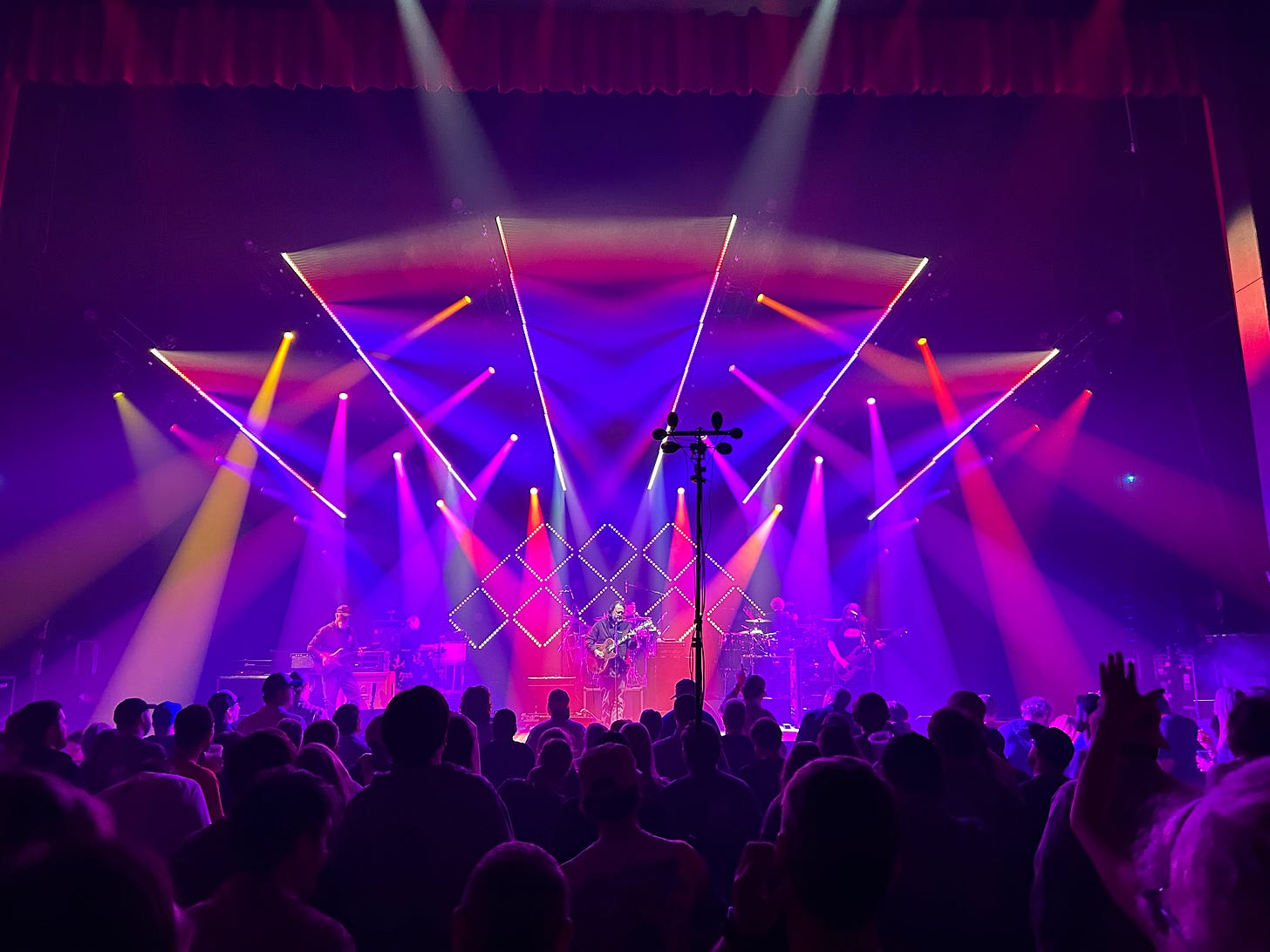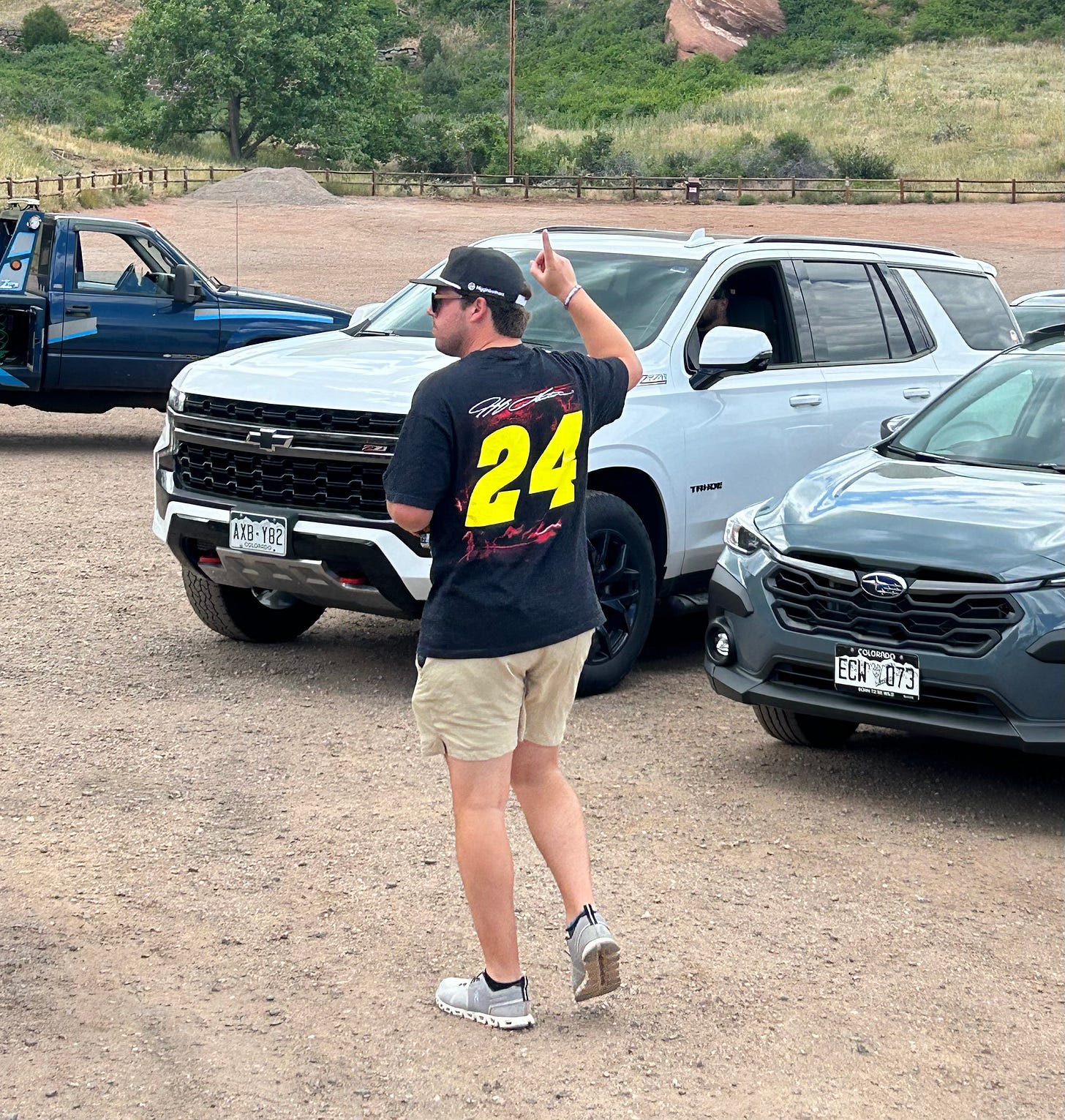The Case for the Jam Band
“Jam band” might not be the most graceful label—it’s a little awkward, and maybe even a bit cringe—but most folks know what it means. At its core, it’s about live, improvisational music and the communities that form around it. If you’re not the one following a band, there’s a chance someone close to you is: a friend, your spouse, a coworker, a parent.
The roots of this whole thing go back to the Grateful Dead. What’s blossomed since then is less a genre and more a movement—one that spans decades and generations, crossing sonic boundaries and geographic lines. Today, the term “jam band” loosely wraps around dozens of acts, from old-school legends to progressive bluegrass prodigies. My own world lives somewhere in the orbit of Widespread Panic and the rising wave of progressive bluegrass—think Billy Strings, Mountain Grass Unit, and Kitchen Dwellers.
For those who’ve acquired the taste, each show isn’t just a concert—it’s their Super Bowl. Entire group chats light up weeks in advance. Friends team up to battle Ticketmaster (fuck Ticketmaster) for tickets. Travel plans form. It becomes a full-on event—music, food, community, adventure.
One of the most distinct features of the jam band universe is the multi-night run. These aren’t one-off shows with a static setlist—they’re unfolding journeys. Each night is a unique experience, never the same twice. You chase the energy. And that energy depends on both parties—the musicians on stage and the fans in the room—feeding off each other, elevating each moment into something unrepeatable.
Before the lights go down, there’s usually a kind of tailgate scene—known simply as “the lot” or “Shakedown.” People set up early, share food, sell merch, swap stories. It’s a mini village that pops up and disappears just as fast.
These runs aren’t for the faint of heart. They’re an extreme sport—physically, mentally, emotionally. You push yourself. And while the scene isn’t perfect (it has its flaws like anything else), the good vastly outweighs the bad. Just look at what Billy Strings pulled off in Asheville: six shows over two weekends that injected life and dollars into a city still reeling from hardship. Widespread Panic has a long-standing tradition of organizing can drives for local food banks wherever they play. The ethos is always: give back, lift up.
And the people you’ll meet at these shows? Everyone. Seriously. Rich and poor. Doctors, lawyers, bartenders, retirees, students, truck drivers. It’s a rare kind of cross-section. And 99% of the time, the experience is positive. It’s a family vibe. People look out for each other. If someone needs help, someone’s there.
For the uninitiated, it might seem wild. But for those of us who know, it’s something sacred. It’s not just about the music—it’s about the journey, the ritual, the release. It’s about being part of something bigger than yourself. And if you’ve never stepped into that world, there’s always another show. Maybe this is your sign to go.




